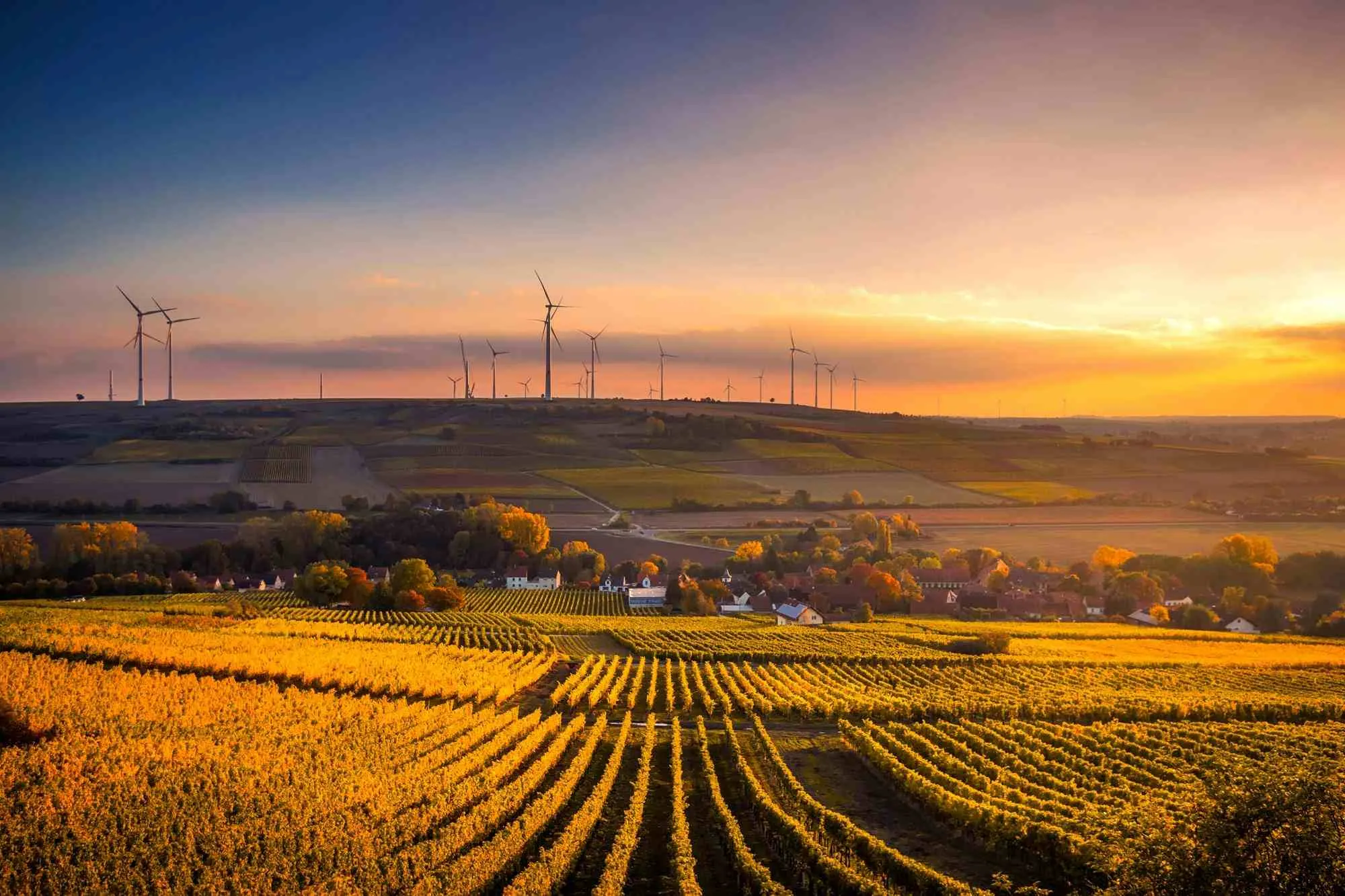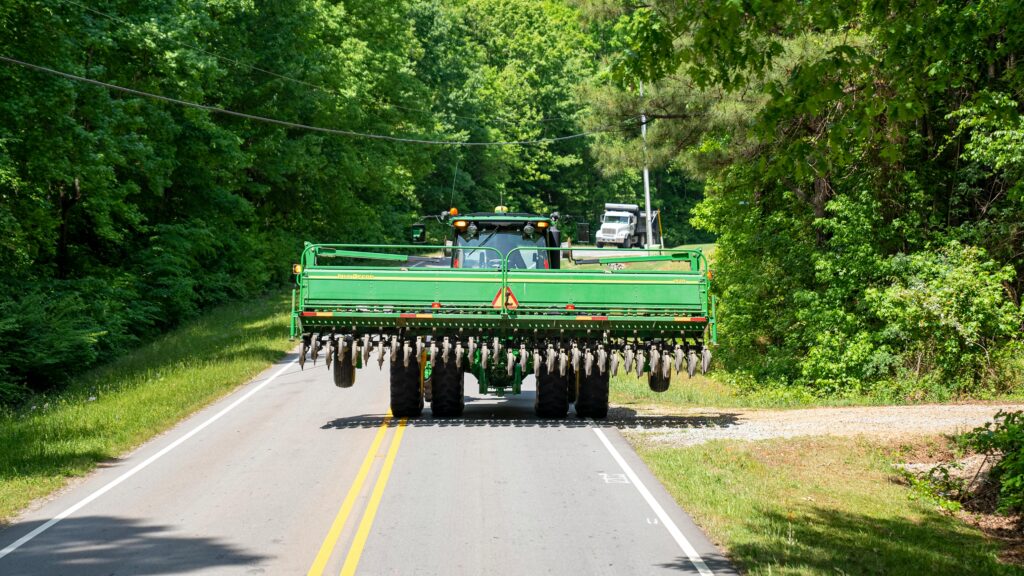Future-Proof Farming: Strong Roots (Part 1)

Climate change is reshaping agriculture faster than ever before. From extreme weather to shifting growing zones and rising emissions, the challenges for global food production are mounting. In response, the agritech sector is accelerating innovation, not just to adapt, but to help mitigate climate impacts.
At Strategic Allies Ltd (SAL), we’re seeing a surge in collaboration opportunities across the value chain, driven by technologies that offer resilience, efficiency, and sustainability. In this first part, we explore three of the most exciting areas of innovation: regenerative agriculture, climate-friendly fertilisers, and precision water management, and the companies – both young and established – making them happen.
Regenerative Agriculture & Carbon Capture
Soil health has emerged as a critical weapon in the fight against climate change. The soil scientist Dr Rattan Lal, winner of the 2020 World Food Prize, claims that increasing the carbon content of the world’s soil by just two per cent would entirely return greenhouse gases in the atmosphere to safe levels, and regenerative agriculture can increase soil carbon stocks by 1-3 tons/ha/year. Healthy soil also improves water retention and supports long-term productivity.
- Wildfarmed is an innovative UK-based company transforming how grains are grown by embedding regenerative agriculture principles directly into the food supply chain. Their innovative, supply-chain-led approach has attracted partners like Marks & Spencer, Gail’s Bakery, and Planet Organic, bringing climate-friendly farming to mainstream food brands.
- Agreena, a fast-growing Danish start-up, has pioneered a carbon farming programme that pays growers to adopt regenerative practices. Backed by a strong digital platform for monitoring soil carbon, they enable farmers to generate and trade carbon credits through verified regenerative practices.
- General Mills has committed to advancing regenerative agriculture on 1 million acres of farmland by 2030, focusing on core crops like wheat, oats, and dairy. To drive adoption, they are running voluntary farmer support programmes promoting principles like minimal soil disturbance, increased biodiversity, cover cropping, and livestock integration, holding similar standards as seen at Groundswell, the annual regen ag event SAL’s Dr Helen Peachey and Sophie Graves regularly attend. The company is also innovating in measurement and verification, deploying satellite imagery, AI sensors, and partnerships with universities like the University of Manitoba and Colorado State University to monitor impacts on soil carbon, biodiversity, and water quality. A standout initiative is its pilot with the NGO Ecosystem Services Market Consortium (ESMC) and the Kansas Department of Health and Environment, where farmers are compensated for carbon sequestration and water quality improvements, demonstrating a scalable, outcomes-based approach to climate-smart farming.
Biological Inputs and Climate-Friendly Fertilisers
Conventional nitrogen fertilisers contribute to climate change through energy-intensive production, transportation, and the release of nitrous oxide (N₂O) after application, a gas 300 times more potent than CO₂. Additionally, excessive fertiliser use also leads to nutrient runoff, polluting waterways and creating algal blooms.
- Pivot Bio has developed nitrogen-fixing microbes that attach to crop roots and continuously convert atmospheric nitrogen into plant-available forms throughout the growing season. This breakthrough offers farmers a safer, more predictable, and climate-friendly alternative to synthetic fertilisers — reducing runoff, emissions, and fertiliser waste while supporting resilient crop yields.
- NouriSol, one of our neighbours at Rothamsted, turns naturally occurring algae into climate-friendly fertilisers. Isolated from farmers’ fields and scaled up for use with standard equipment, these algae capture carbon and nitrogen during production and, once in the soil, continue converting nutrients into plant-available forms. By releasing them slowly, they improve uptake efficiency, boost soil health, and reduce the need for conventional fertilisers.
- Yara International has introduced its Climate Choice™ fertiliser portfolio, designed to dramatically cut the carbon footprint of crop nutrition. By using carbon capture and storage (CCS) and producing ammonia from renewable energy sources, these nitrate-based fertilisers achieve 35–95% lower emissions compared to conventional products, helping farmers and food companies reduce upstream Scope 3 emissions without compromising productivity.
Precision Agriculture and Water Management
Data-driven agriculture is enabling more efficient use of water, fertilisers, and land -essential in a climate-constrained world. Recent advances in AI-driven irrigation systems integrate machine learning, IoT sensors, and computer vision to deliver real-time soil–plant monitoring and adaptive water scheduling. These systems have been shown to improve water-use efficiency by 30–50% and crop yields by 20–30%, while reducing nutrient loss and energy use.
- Verdi, from Canada, brings automation to irrigation, replacing manual checks with real-time soil data and wireless sensor networks. Farmers can connect existing probes or install new drop-and-go sensors, all feeding into the Verdi Dashboard, which integrates moisture trends, pump activity, and NDVI imagery, cutting hours of labour and optimising water use.
- CropX Technologies (Israel) integrates soil sensors, satellite and weather data, and AI-driven analytics to deliver real-time irrigation (and fertilisation) recommendations tailored to each field. By tracking soil moisture at different depths and mapping root-zone activity, the system helps farmers irrigate where crops are actually drinking, avoid overwatering, and adjust refill points as crops grow.
- John Deere, a global heavyweight in agricultural machinery, is embedding AI and machine learning into its equipment for ultra-precise application of water and inputs. Its precision ag toolkit—from StarFire GPS receivers and Mobile Weather sensors to Surface Water Pro™ Plus and iGrade™ systems—allows producers to map fields, automate drainage and leveling, and adapt irrigation in real time.
The Road Ahead: Collaboration is Key
From soil carbon marketplaces to AI-driven irrigation, the agritech sector is undergoing a profound transformation—and it’s happening fast. What’s clear is that no single company can tackle the climate challenge alone. The most successful innovations are emerging from cross-sector partnerships, start-up-corporate collaborations, and open innovation models.
At Strategic Allies Ltd (SAL), we help our clients identify and engage with these innovation leaders—whether it’s a biotech start-up transforming nitrogen use, or a machinery giant seeking sustainable input solutions. If your business is looking to adapt to and lead in the climate-driven agrifood transition, now is the time to explore new partnerships and technologies.
Interested in uncovering the right innovation partner? Get in touch with John Allies or Sophie Graves to see how we can help.
